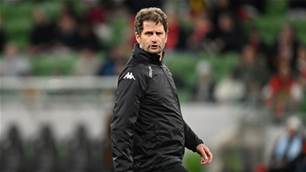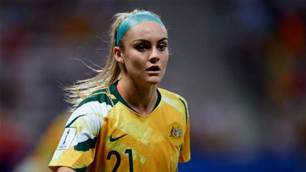'Dedicated Lives: An oral history of women’s football in Australia' hears the stories of the groundbreakers in women's football, both known and unknown. But it stems from a father's personal journey.
Dr Greg Downes was an outsider and casual observer of grassroots women's football, when his experiences with his youngest daughter prompted him to write a PhD thesis on the evolution of women's football in Australia.
My youngest daughter was playing football (soccer) for Byron Bay (she had been playing from the age of 11) at the same time I was completing my Masters in International Sport Management," Downes told The Women's Agenda.
"By this time she was a member of the very successful senior women’s team. Over the years it became clear that things were different for the girls in relation to the boys. Although they all played for the same club, the girls were clearly treated as if they were put up with rather than welcomed.
"There were many examples of the differences, but most were evident in the second hand playing shirts, limited and restrictive training spaces, difficult game schedules and lack of club support and resources.
"As a parent I became involved in the fight to make my daughter’s involvement an inclusive one. I started to become more aware of the issues on a much broader scale, and the lack of attention paid to the issues surrounding women and sport. As I began to research the topic I quickly realised that women’s sport was of little interest to most. This led me to my Masters Research topic and eventually to my PhD."
Downes' resulting book speaks to many of the most notable women from Australian football history but also interviews many of the less heralded names, who Downes believes have had just as formidable an impact on the success the Matildas enjoy today.
"I would like people to know about the long and interesting history of the women’s game in Australia, and the many hardships the women had to face to play a game, which was traditionally looked on as a men’s game," he continued.
"This required them to battle against widespread gendered discrimination in a search for recognition, resources and support. Despite the hardships the women shared a genuine love and passion for the game and along with family and community as major cornerstones of support they continued their efforts to play.
"They fought for equal rights and resources, developed competitions (regional, state and international) and formed associations across the country, and rallied against the might of FIFA for fairness and equity for women coaches and the right to hold a Women’s World Cup."
Downes believes the Matildas position in Australian society will continue to build on their recent successes, however he says that society must continue to evolve with them.
"I think we need to start with the change in society generally and how we look at gender and discrimination. I think this is becoming more balanced and is being reflected in how women in sport are treated," he said.
"In relation to women’s sport, the playing field has changed radically over such a short period of time which again is reflected in gains in relation to equal pay, resources, and support. You just have to look at the Australian women’s cricket team and the AFLW competition.
"In addition, these teams are winning and attracting media attention. Success leads to recognition leads to marketability.
"In relation to the Matildas, there has been a groundswell of support for the team both in the lead up to and during the recent WWC campaign and the growth in support for the bid to host the 2023 World Cup in Australia.
"The current players are enjoying some of the benefits of the many giant steps taken by women’s sport and football in particular in recent times. The players are now well known both in Australia and internationally – look at Sam Kerr.
"They are also great role models for young girls and the game events are family friendly, attractive and welcoming to the wider family group. The game is now engaging fans, attracting wider media attention and driving participation numbers.
"Having recently qualified for the now 2021 Olympics I think this position will only improve."
Related Articles

'Timing not right': Montemurro's verdict on Matildas vacancy

Matildas: 'Fourth at the Olympics is honestly the worst place you could come'
.jpg&h=172&w=306&c=1&s=1)












